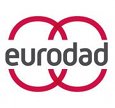 The World Bank’s Doing Business Report has been criticized by a global coalition of Civil Society Organizations to contain major methodological flaws. Such shortcomings threaten to undermine not only the report’s credibility but also the World Bank’s effectiveness in achieving its goals. Experts argue that a comprehensive overhaul of the existing indicators in the report will be necessary if it is still to serve as a useful instrument to assess the contribution of business to global development. Moreover, there is a need for the report to better align with moves towards a paradigm of greater country-owned and led development. Improved alignment will ensure that a country’s particular circumstances and political choices are not overlooked.
The World Bank’s Doing Business Report has been criticized by a global coalition of Civil Society Organizations to contain major methodological flaws. Such shortcomings threaten to undermine not only the report’s credibility but also the World Bank’s effectiveness in achieving its goals. Experts argue that a comprehensive overhaul of the existing indicators in the report will be necessary if it is still to serve as a useful instrument to assess the contribution of business to global development. Moreover, there is a need for the report to better align with moves towards a paradigm of greater country-owned and led development. Improved alignment will ensure that a country’s particular circumstances and political choices are not overlooked.
October 28, 2014 | Eurodad
Reforms to World Bank’s flagship Doing Business report are off track and undermine World Bank’s credibility
Campaigners demand urgent action from World Bank President Dr Jim Yong Kim
A global coalition of Civil society organisations (CSOs) are demanding World Bank president Dr Jim Yong Kim implements significant changes to the Bank’s flagship Doing Business report, as recommended by independent experts. The report ranks nations on the quality of their business environments, but experts say it is riddled with methodological flaws and promotes some reforms that can damage developing countries.
The report has come under intense criticism from civil society groups, from the Bank’s Independent Evaluation Group (IEG) and – most recently - from an Independent Panel Review, chaired by former South African finance minister Trevor Manuel, and set up by the World Bank president. The review found ‘serious flaws’ in the methodology of the report, and questioned its relevance in achieving the World Bank’s goals of eradicating poverty and boosting shared prosperity.
Recently the World Bank has proposed several changes to Doing Business, but the major recommendations from the independent evaluation have been ignored, including the recommendation to remove the aggregate rankings which influence decision makers, but can promote the wrong incentives.
Doing Business – published annually since 2003 - ranks nations on the basis of their business environments through several indicators - such as corporate taxation and access to credit - that have proved problematic over the years due to their methodology. The problems with the methodology were demonstrated in the former labour indicator, known as the “employing workers indicator,” which was removed from the main report and placed in an annex due to objections from trade unions, other organizations and some governments because it promoted a race to the bottom in terms of labor rights and workplace standards.
CSO groups have written to Dr Kim to stress their disappointment and frustration that many of the central recommendations coming internally and externally to the World Bank have not been reflected in proposed reforms.
Tiago Stichelmans, Policy and Networking Analyst at the European Network on Debt and Development (Eurodad), said: “The Doing Business report should assess the contribution of business to global development and the reduction of poverty – the Bank’s overall goal – which it currently does not. Despite a clear warning on the necessity to reform the report from within the bank, and by the independent evaluation, only minor reforms have been introduced. It’s time to ditch the unscientific and damaging rankings, and implement the reforms the independent panel recommended.”
Sharan Burrow, General Secretary of the International Trade Union Confederation (ITUC), said: “We are extremely disappointed that these recommendations are not being fully implemented. The DBR continues to advocate the elimination of labor regulations, thus discouraging countries from providing workers with proper protection. Some of the countries that perform poorly under the ITUC’s Global Rights Index, which is based on countries’ records in respecting workers’ basic rights, were highly rated within the DBR.”
Antonio Gambini, researcher for the Belgian organization CNCD-11.11.11 noted that: “The paying taxes indicator is still based on questionable data and is still based on the naive assumption that any corporate tax break is good for the economy and society. The World Bank should instead join the growing international consensus against tax fraud and aggressive tax planning and for more tax justice”
The organizations that have signed the CSO letter to the World Bank are:
• 11.11.11 (Belgium)
• Action Aid International
• Afrodad
• Bretton Woods Project
• CAFOD
• Center of Concern
• Christian Aid
• CNCD-11.11.11 (Belgium)
• Eurodad
• Green Policy Institute (Bulgaria)
• ITUC – International Trade Union Confederation
• Jamaa Resource Initiatives (Kenya)
• JCTR – Jesuit Center for Theological Reflection (Zambia)
• KOO - Koordinierungsstelle der Österr. Bischofskonferenz f. internationale Entwicklung und Mission (Austria)
• KOSID – Kosovo Civil Society Consortium for Sustainable Development (Kosovo)
• Latindadd
• Oxfam International
• Urgewald (Germany)
Source: http://bit.ly/1twdHaF
